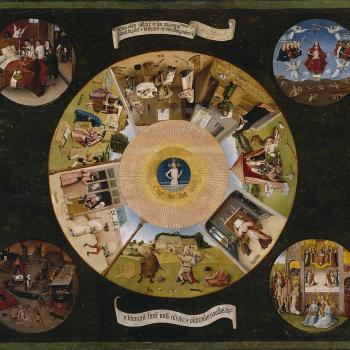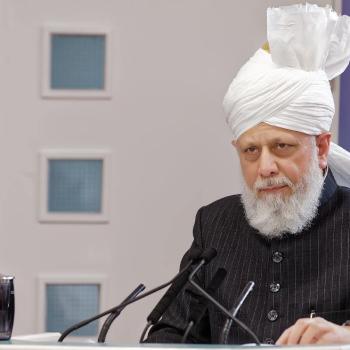by Ijaz Ahmed
It has been twenty years since I last visited Pakistan, the country of my ancestry. I can still recall fond memories of riding on a rickshaw, walking down alleyways of Gujranwala, or grabbing some grub from a street vendor. But most of what I know of Pakistan, I have heard from my parents’ stories about their childhood and upbringing. There are numerous beautiful qualities about Pakistan that I would very much enjoy the opportunity to experience. The reason I have not been in so long is because it is not safe for me. It is the same reason why my parents migrated from Pakistan so many years ago.
Ordinance XX is a legal ordinance of Pakistan put into law by General Zia-ul-Haq in 1984 that limits the practice of Islam in the country by prohibiting Ahmadi Muslims from claiming to be Muslim, from engaging in customary Islamic practices, such as using the traditional Muslim greeting, or from calling their places of worship mosques. Any Ahmadi Muslim prosecuted under this law could face up to three years of imprisonment with a possible fine. As Ahmadi Muslims, my parents, fearing for their safety and the safety of their children, migrated to the United States prior to my birth.
I still keep in touch with relatives in Pakistan and would very much love the opportunity to visit them. However, visiting a country where I am not comfortably allowed to be myself is far from the top of my vacation list. Besides not being able to freely practice their faith, Ahmadi Muslims throughout the country are constantly overwhelmed in fear. Chronic persecution of Ahmadi Muslims within Pakistan has erupted in scores of violent attacks decimating families, homes, mosques, and businesses.
On May 28th, 2010, two Ahmadi mosques in Lahore were brutally attacked by radical militants. Armed with heavy weaponry and suicide vests, the chaos resulted in the death of 94 Ahmadi Muslims. A few years prior to this horrific event, during the holy month of Ramadhan, armed thugs riding motorcycles entered an Ahmadi Mosque and sprayed bullets on the congregation gathered for early morning Fajr prayer. To date, justice has not been attained for either incident.
Last year, Ahmadi homes in Gujranwala were burned down by an angry mob provoked by Muslim clerics. One elderly woman, two young girls, and an unborn child were killed as a result of smoke inhalation. More recently, a similar angry mob set fire to a factory owned by Ahmadi Muslims in Jhelum. Under the guise of religion, the mob attempted to set the factory on fire with Ahmadi Muslims still inside. No arrests were made for any of these events, except for the detainment of Ahmadi Muslims presumably for their protection.
The country of Pakistan prides itself on its Islamic traditions, yet fails to govern in accordance with the Qur’an. The Qur’an clearly states, “There is no compulsion in religion” (Qur’an 2:257.) So why do Muslim clerics have free reign to reproach people of other faiths and beliefs without any repercussions? Not only Ahmadi Muslims, but Shia Muslims, Christians, Hindus, and others are consistently oppressed. It’s rather unfitting for Pakistan to have a flag with the crescent moon and a star, often associated with the religion of Islam, when the laws in the country contradict the teachings of Islam. The Holy Qur’an strictly prohibits calling anyone non-Muslim when it says “…and say not to anyone who greets you with the greeting of peace, ‘Thou art not a believer.’” (Qur’an 4:95)
According to Islam, whether an individual is Muslim or not is the sole decision of God Himself. During the course of a war, a contemporary of the Prophet Muhammad, Usama bin Zaid, confronted an enemy and knocked him down to the ground. With no way of escape the man cried out “There is no being worthy of worship save God,” thereby indicating that he had accepted Islam. Usama bin Zaid ignored this and killed him before he could finish. News of this came to the Prophet and he asked Usama bin Zaid, “How will it be with you on the Day of Judgement when his confession of faith will bear witness in his favor?” Usama bin Zaid replied that he “was a murderer of Muslims and his declaring himself to be a Muslim was merely a ruse to escape just retribution.” The Prophet repeated the same question and further asked “did you glimpse into his heart to see whether he was telling the truth or not?” Usama bin Zaid relates that the Prophet “kept on repeating that question until I wished that I was not Muslim yet until that day” (Muslim, Volume 2 Page 107). Here, the Prophet of Islam demonstrated the importance of respecting a person’s declaration of faith.
I wish the country of Pakistan would wake up and realize that the persecution of Ahmadi Muslims is one of the worst examples of state-sanctioned religious persecutions in this age and is in complete disagreement with the teachings of Islam. After all, it was under the light of both secular and true Islamic principles that the founder of Pakistan, Muhammad Ali Jinnah, proclaimed “Who am I to declare a person as non-Muslim who calls himself a Muslim?” It is time for everyone, especially Pakistani citizens, to stand up for the human rights and strongly declare #IStandWithAhmadis. It is time to embrace the true Islamic teachings of love, compassion, and service to humanity. I may not have been born in Pakistan, but I believe in the Pakistan envisioned by Jinnah: a secular state free of intolerance, bigotry, and religious extremism. Once that Pakistan comes around, I will surely be visiting.
















